#emissions
Worried About Exhaust in Your Ford Explorer's Cabin? Ford Might Just Buy It Back
Well, it might if a news crew profiles your SUV. A Maryland couple’s 2016 Ford Explorer, one of many late-model Explorers suspected of emitting high levels of carbon monoxide into the cabin, turned out to be doing just that. However, even after the exhaust leak was confirmed — then fixed — by Ford, peace of mind did not return to Mark and Valentina Shedrick.
With an NBC news team sniffing around and a National Highway Traffic Safety Administration investigation ongoing, the automaker decided to buy back the vehicle. Other owners, including police departments, would likely prefer knowing their vehicle is safe.
California's Current Strategy to Ban Internal Combustion Engines
California has been toying with the idea of banning internal combustion motors for a couple of years now. While the concept is gaining popularity across the globe, the ban itself is a bit misleading. Regions in favor of the idea aren’t really pursuing an outright ban on engines that burn gasoline; they’re trying to mandate electrification and reduce emissions via non-traditional powertrains.
In April of 2015, California Governor Jerry Brown announced, “If the federal government can’t get it right, we in California are going to take care of business.” With the Trump administration making strides to roll back regulatory efforts, it appears the state of California is ready to pop in some Bachman–Turner Overdrive and begin taking care of said business.
Evidence Exhibit #127 In the Case of Market V. Small Cars: Volkswagen Considering Pulling the Up City Car From Europe
The global auto industry is not a place in which small car production is as straightforward as it was a decade or two ago.
Brought closer to home, Americans are buying roughly 30-percent fewer subcompact cars now than they were just three years ago. With next to no fuel economy advantages; limited payment upside; and less refinement, power, and space, why would a car buyer choose a subcompact over a compact sibling? Most buyers don’t. In the United States, compact car sales are five times stronger than subcompact sales. August’s top three compacts (Civic, Corolla, Cruze) outsold their subcompact brethren (Fit, Yaris, Sonic) by more than seven-to-one.
Many automakers don’t even bother selling their smallest cars in North America. Mazda’s latest 2 never saw U.S. import. FCA has left the compact market, having long since left the subcompact sector to rivals. Subaru doesn’t dive below the Impreza platform. And Volkswagen stops at the Golf, leaving the subcompact Polo for more small-car-friendly countries.
But how keen on small cars are those other countries? In some instances, not keen enough. Volkswagen boss Herbert Diess tells Autocar, “Selling small cars is not easy.” And he’s clearly not just talking about F-150-loving America. “It’s a very European problem,” says Diess. As a result, the Volkswagen Up city car, a Lupo successor, may pull out of Europe in favor of emerging markets only.
Researcher Claims Real-World Economy and Lab Testing Are Miles Apart
One of my guiltiest of pleasures is telling anyone trapped with me in a confined space for more than thirty seconds that practical fuel economy hasn’t improved in a meaningful way since 2014. While the EPA has raised corporate economy estimates, consumer spending has skewed toward larger and less economical models — invalidating the technological gains made in a vehicular catch-22.
However, some researchers have also begun calling the technologies focused on cutting emissions and saving fuel into question. We already know that lab tests can be gamed through clever engineering. But we don’t drive vehicles on a rolling road and the differences between the lab and the street are immense. Emissions Analytics, an independent company based in the United Kingdom, has tested more than 500 vehicles in the United States since 2013 and believes a change in testing venue can make all the difference.
The firm conducts real-world analyses under normal on-road driving conditions using portable testing gear. Its says its goal is to suss out which trends in the automotive space actually have a meaningful impact on economy — and which are bunk.
The Smog State: Vehicle Emissions Still Rising in California, Despite Regulations
Despite aggressive regulatory efforts to counter pollution, California emissions from on-road transportation rose by roughly 4.4 million metric tons of carbon dioxide in 2015 vs one year earlier, according to the San Francisco-based non-profit Next 10. The state also had the dubious honor of housing six of the country’s 10 most polluted cities, based on data from the American Lung Association’s annual “State of the Air” report released last April.
While topography plays a major role (cities located in valleys and basins have a tendency to trap air pollutants), much of the problem has to do with Californians driving more. Let’s face it, gas is cheap and public transit options are typically the less-enjoyable option in all but the most densely packed cities. In fact, the Los Angeles County Metropolitan Transportation has seen declining ridership over the last two years — even though the city has a major issue with traffic.
General Motors Believes Diesel Lovers Haven't Stopped Loving Diesels
General Motors’ diesel-powered midsize pickup trucks are the only midsize pickup trucks available in America with diesel engines. GM’s Chevrolet Cruze is the only compact car on sale in America with a diesel engine. Although the Mazda CX-5 is scheduled to arrive later this year, diesel-powered editions of the Chevrolet Equinox and GMC Terrain will be the first small utility vehicles with diesel options.
With all the negative diesel press earned largely by the eruption of Volkswagen’s emissions scandal in September 2015, is GM’s investment in America’s diesel market a complete and utter waste?
GM obviously thinks not. “I don’t think diesel customers forgot why they liked driving diesels in the last two years,” GM’s vice president for global propulsion systems, Dan Nicholson, tells Automobile. “They didn’t forget about the driving character or the fuel economy.”
Moreover, Nicholson says of the tens of thousands of former Volkswagen TDI owners, “We don’t think those customers went away.”
2017 Jeep and Ram EcoDiesels Are Legal Again, Baby!
The light-duty Chrysler diesel is back. After a bevy of undeclared emissions control devices sank Fiat Chrysler Automobiles into a cauldron of hot water back in January, U.S. regulators have certified 2017 models powered by the company’s 3.0-liter EcoDiesel V6.
Having spent the last half-year cooling their heels, unsold Ram 1500 and Jeep Grand Cherokee oil-burners are once again legal for sale to torque- and economy-obsessed buyers.
FCA earned itself plenty of bad PR after the Environmental Protection Agency all but accused the automaker of a Volkswagen-like scheme to deceive the U.S. government and cheat on emissions tests. The undeclared software amounted to a violation of the Holy Grail of environmental legislation: the Clean Air Act. Software tweaks have now rendered the engine compliant, earning a certificate of conformity (also known as a thumbs up) from the EPA.
Too bad about that Justice Department lawsuit.
U.K. Prepared to Ban Internal Combustion Engines by 2040
Britain will ban the sale of all new gasoline and diesel cars starting in 2040 as part of the government’s plan to reduce air pollution and copy France. The strategy, fronted by U.K. environment secretary Michael Gove and transport secretary Chris Grayling, would not only ban the future sale of internal combustion engines, but also provide a governmental incentive program similar to the United States’ Car Allowance Rebate System — colloquially known as “cash for clunkers.”
Because, as you know, nothing is better for the environment ( or the used car market) than populating scrapyards with fully functional automobiles and having factories across the globe expend extra energy to replace them.
“We can’t carry on with diesel and petrol cars,” Gove told British television audiences on Wednesday. “There is no alternative to embracing new technology.”
VW Executive Charged in U.S. Emissions Probe to Plead Guilty
Oliver Schmidt, former top executive at Volkswagen’s environmental and engineering center in Michigan, is ready to plead guilty in a U.S. District Court in Detroit next month. Schmidt is charged with 11 felony counts relating to VW’s diesel emissions scandal and may be eligible for a maximum sentence of 169 years, according to federal prosecutors.
While the trial isn’t scheduled until August 4th, a spokesman for the court indicated the former-VW executive is seeking a plea deal. The details of the bargain are currently unknown, but it’s likely to involve a reduced sentence in exchange of information on the scandal’s murky history.
Germany Forced to Appear Proactive as Anti-diesel Prejudice Swells in Europe
With Paris, Madrid, Athens, and Mexico City all pledging to ban diesel vehicles from entry within the next few years, the fuel’s future doesn’t look particularly bright. While citywide bans like these are becoming increasingly popular in Europe, diesel vehicles still account for almost half of the continent’s registered vehicles.
Germany, which has been speedily moving away from the fuel since Volkswagen’s emissions fiasco, provided more than its fair share of those diesel-powered models. It’s been mulling over how to handle it’s own regulatory matters pertaining to the fuel and the rest of the European Union’s intense pressure doesn’t seem to have fazed it.
Instead of enacting the same transportation ban on diesel vehicles as seen in Paris, Germany has decided to furnish its automakers with the opportunity to clean up their act. Industry officials and politicians have agreed to implement software updates on existing vehicles specifically to keep them eligible for operation within major metropolitan areas. Considering Mercedes-Benz just offered to “voluntarily” recall 3 million Euro-spec cars fitted with diesel engines, that’s incredibly good timing. Likewise, Volkswagen Group claims it will update 850,000 Porsche and Audi vehicles equipped with larger diesel motors.
Daimler to 'Voluntarily' Recall 3 Million Vehicles in Europe Over Diesel Emissions
With Volkswagen’s emission crisis winding down (but seemingly never over), Daimler AG is taking center stage as the next automaker to potentially face serious hardship for dastardly diesel misdeeds. For the last few months, investigators from the United States and Germany have begun suspecting that Mercedes-Benz equipped its vehicles with defeat devices similar to those used by VW. While no evidence of fraud has surfaced, there’s reason to believe Daimler may have violated emission standards — especially now that it has decided to recall 3 million late-model diesels.
“The public debate about diesel engines is creating uncertainty,” Daimler CEO Dieter Zetsche said in a statement on Tuesday. “We have therefore decided on additional measures to reassure drivers of diesel cars and to strengthen confidence in diesel technology.”
Daimler Summoned by German Government Amid Emissions Cheating Probe
After a pair of Mercedes-Benz engines garnered increased scrutiny from regulatory agencies, the German government has summoned executives from Daimler to account for its activities as a new diesel emissions probe picks up steam.
The automaker has confirmed several of its representatives are attending a hearing on Thursday afternoon to speak with the German Transport Ministry — just one day after news broke that Stuttgart investigators believed some diesel-powered Mercedes vehicles may have been equipped with defeat devices between 2008 and 2016.
The investigation centers around the OM642 V6 and OM651 inline-four turbo-diesels, both of which are under suspicion of being equipped with illegal technology used to circumvent emissions testing. Interesting, Mercedes gave up on certifying diesel-driven vehicles in the United States this year after four models Benz had hoped to sell failed to obtain regulatory approval.
Trump Administration Re-examining Penalties for Fuel Economy Flubs
Automakers’ ability to adhere to the regulatory standards set by the U.S. government are beginning to slip. Manufacturers predicted industry-wide economy inadequacies for 2016 model year vehicles, anticipating things would only worsen for 2017. The Trump administration has framed itself as a friend to automotive companies, with the president himself claiming he would remove regulatory hurdles while in office. Corporate economy guidelines established under President Obama are already under review, but now so are the penalties companies would have to pay for not meeting them.
In a regulatory filing on Friday, the National Highway Traffic Safety Administration said it would be seeking public comment on how to revise plans, slated to go into effect from the 2019 model year, which would more than double the penalties on auto manufacturers that fall short of meeting the government-set economy targets.
EPA Says a Chevrolet Volt Is Barely Greener Than a Toyota Prius
If the Chevy Volt and Toyota Prius are presented as solutions to cut greenhouse gas emissions, it may be a toss-up as to which one wins.
This is according to the U.S. Environmental Protection Agency’s fueleconomy.gov website, which lets consumers determine tailpipe plus upstream emission. The difference on a nationally averaged basis is negligible, while regional variations see one car or the other pulling ahead.
Audi Manager Nabbed in Germany for Role in Diesel Conspiracy; U.S. Authorities Press Charges
American investigators, hot on the trail of Volkswagen Group executives and managers with dirty hands, haven’t had the easiest time bringing suspected emissions scandal conspirators to trial. Germany doesn’t extradite citizens facing charges in other countries, making justice a tricky pursuit for U.S. authorities.
So far, only two players in the diesel deception find themselves in the arms of U.S. law enforcement— James Liang, a former executive who worked in California (and has pleaded guilty to conspiracy charges), and Oliver Schmidt, a former U.S. environmental liaison who previously worked out of VW’s Michigan emissions office. Federal agents nabbed him during a Miami layover as the German national returned home from a tropical vacation in January. Six others remain safely in Germany after a U.S. indictment.
Well, expect another trial now. Earlier this week, Munich police arrested an Italian national, Zaccheo Giovanni Pamio, the former head of thermodynamics at Audi’s engine development division. It’s the first diesel-related arrest in Germany and Pamio’s citizenship means he’s a candidate for extradition to the United States.
Now charged in connection to the scandal, American authorities hope Pamio squeals on his bosses at Audi. As for his involvement, the federal government alleges Pamio and others decided a premium sound system was a better use of vehicle space than a proper emission control system.




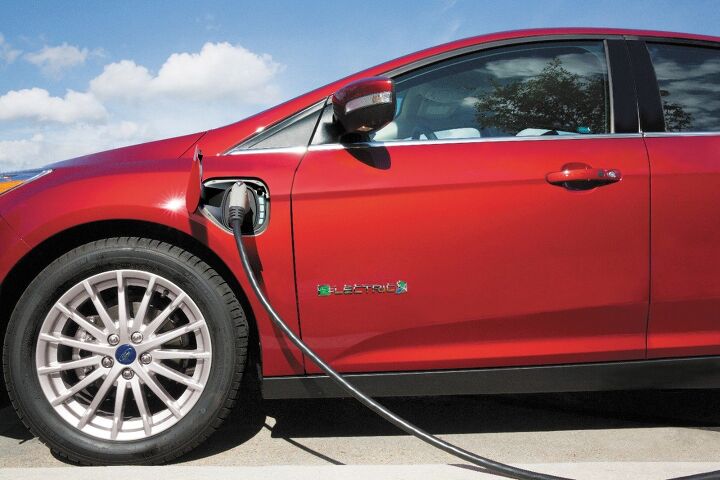



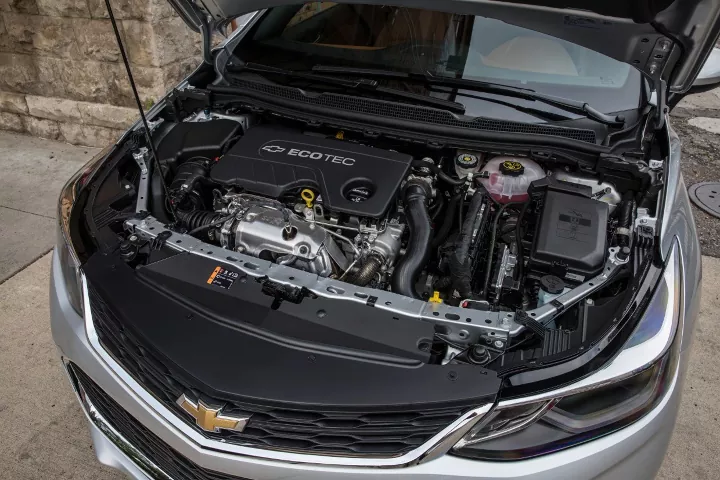
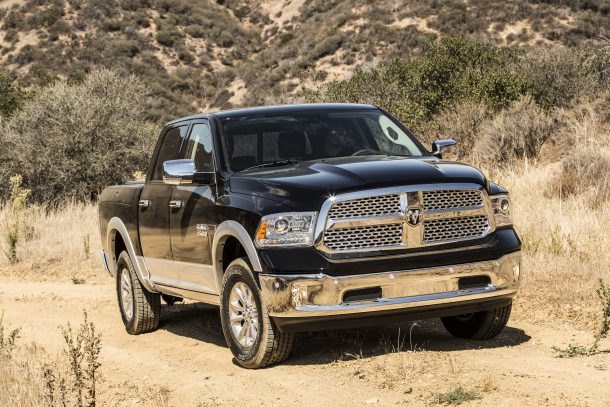



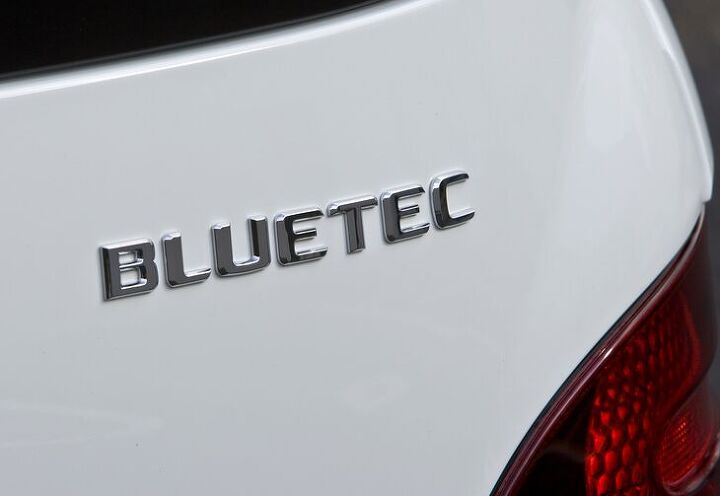

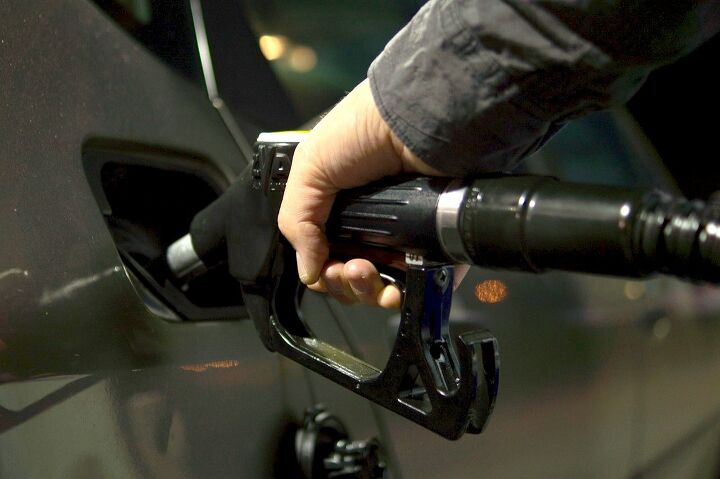
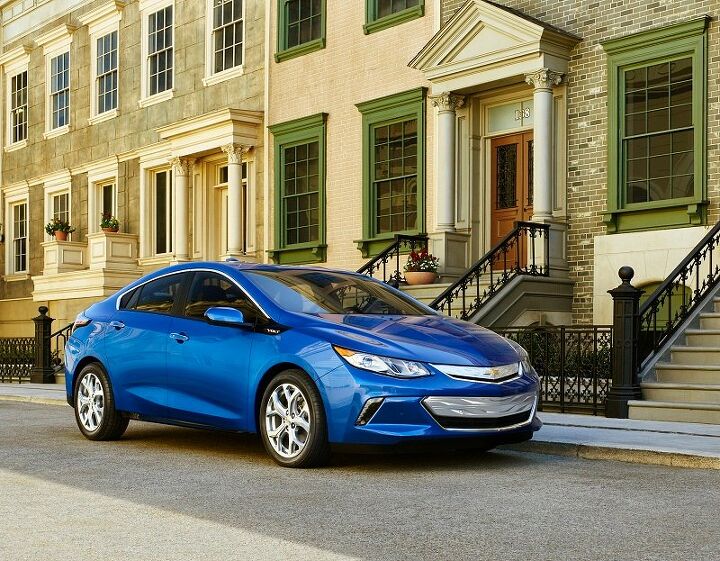













Recent Comments